Xenophobic violence: South Africa's identity crisis
- Published
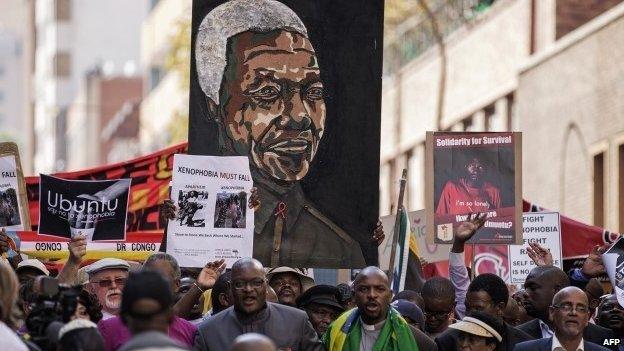
In our series of letters from African journalists, writer and novelist Adaobi Tricia Nwaubani considers South Africa's identity within Africa.
Over the past few weeks, some South Africans seem to have been in keen competition to displace Africa's militant Islamist groups Boko Haram and al-Shabab from international headlines and become the latest African murder sensation.
I would not be surprised if a new social media campaign soon starts making the rounds: "I am a South African, not a xenophobe."
Tough luck. It will probably take a while for the country to restore its image after last month's brutal onslaught against foreigners left at least seven people dead, about 5,000 homeless and the livelihoods of many more destroyed after foreign-owned shops were looted and torched.
I have often referred to South Africa as a genetically modified African country. It is in Africa but not really quite like the rest of us.
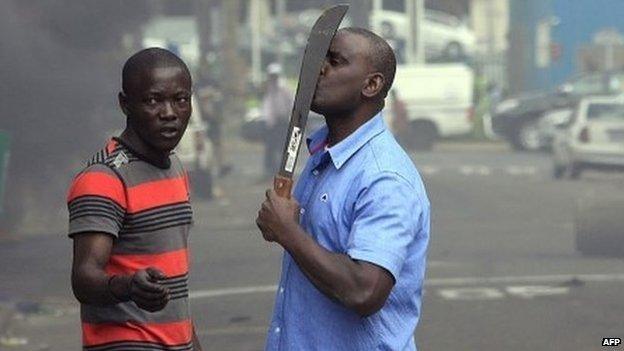
Foreigners in South Africa recently began arming themselves after coming under attack
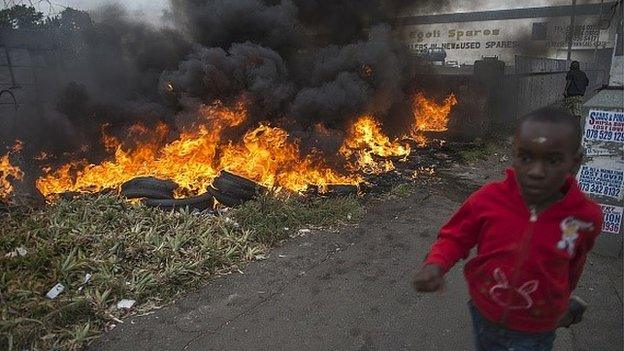
Durban and Johannesburg saw the worst of the recent violence against foreigners
Travelling to South Africa often feels like a visit to the West. If a vacation across the Atlantic was proving too much bother, you could always go there.
Staff at the country's international airports come across as simply doing their jobs rather than looking for a new way to make your life miserable.
The malls stock many of the world's favourite brand names.
You can describe the length of your road journeys in miles and kilometres rather than in hours and days because the highways are smooth and broad and brightly lit.
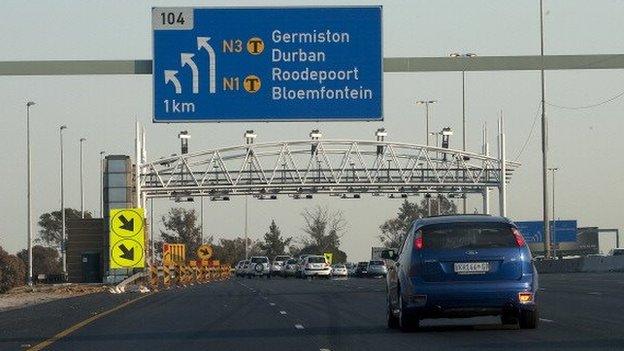
Being in South Africa can feel like a visit to the West
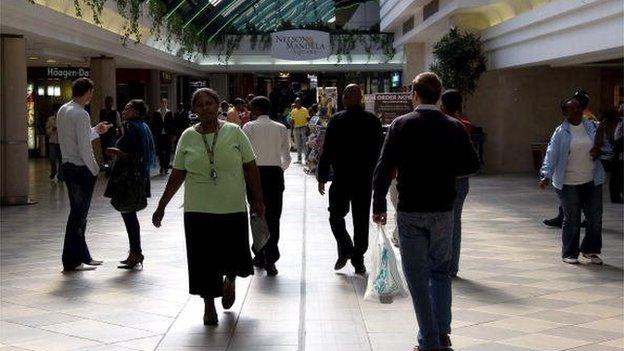
In some areas it has upmarket shopping centres - and a good infrastructure
The climate gives your complexion a fresh glow that lets everyone back home in Nigeria know at first sight that you have just been away.
And South Africa is probably the only country in Africa that can boast a barrage of desperate migrants from Nigeria, similar to the UK and US.
Church visa scam
Not long ago when my church announced that the choir would be travelling from Nigeria to participate in a music festival taking place in South Africa, the music department suddenly experienced an influx of never-seen-before members.

Adaobi Tricia Nwaubani:

"South Africa remained an inspiration to the rest of Africa. White people or no white people, it was an African country; it was an African star"

People would attend church for the first time on a Sunday and indicate by the next Sunday, to the music director's glee, that they were interested in joining the choir.
Typically, it can take weeks of prayer and persuading before a new member in church finally makes the decision to establish their commitment by joining a service department.
Soon enough, someone detected the scam.
Many of the aspiring minstrels were simply lured by the South African visa, which the church was to provide for the concert participants.
A visa to Angola or Kenya or Malawi would probably not have been as enticing.
Eventually, a background check led to a number of the newest choristers being barred from the trip and their air fares refunded.
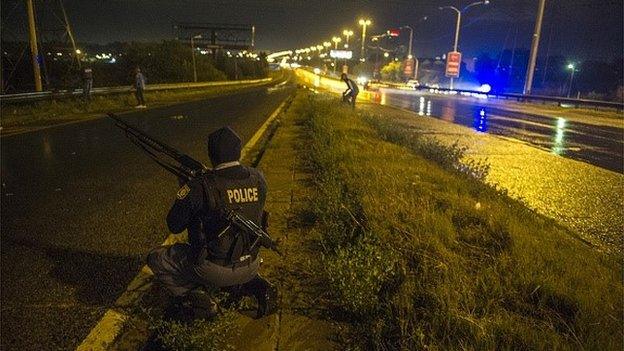
South Africa's armed forces have been out in force to stop looting and contain the violence
Almost immediately, the opportunists disappeared from church.
These same people would probably also have disappeared into the nooks and crannies of the country, or into the basements of conniving relatives, soon after their arrival in South Africa.
'Beauty into ashes'
Of course, there are the many Africans I have heard frequently voice the conviction that South Africa is so different from the rest of us simply because of the prevailing influence of the Caucasians in their midst.
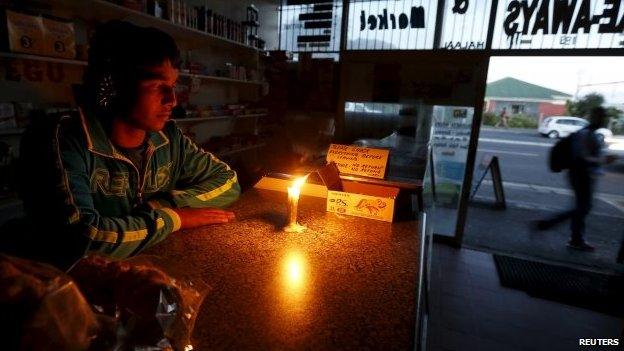
Rolling blackouts, known as load-shedding, have been affecting businesses in South Africa
Nevertheless, South Africa remained an inspiration to the rest of Africa. White people or no white people, it was an African country; it was an African star.
Now, the xenophobes are trying harder than usual to ruin it for us.
They seem to have said to themselves: "Let's prove to the world once and for all that we can be as African as any other African country.
"We can start conflict out of nothing. We can churn out disturbing headline after disturbing headline.
"We might be a land flowing with milk and honey but we can also make life miserable for anyone who sets foot here. We can turn beauty to ashes."
As if the electricity outages that began towards the end of last year in South Africa were not proof enough.
From now on, visits to South Africa by foreign nationals may be marred by concern about when the next xenophobic violence might erupt, the same way some people say they are afraid to visit Nigeria because of Boko Haram - although all the attacks so far have mainly taken place in only one part of the country.
Congratulations, my South African brothers and sisters.
Your efforts have not been in vain; you are now definitely one of us. Welcome to Africa.